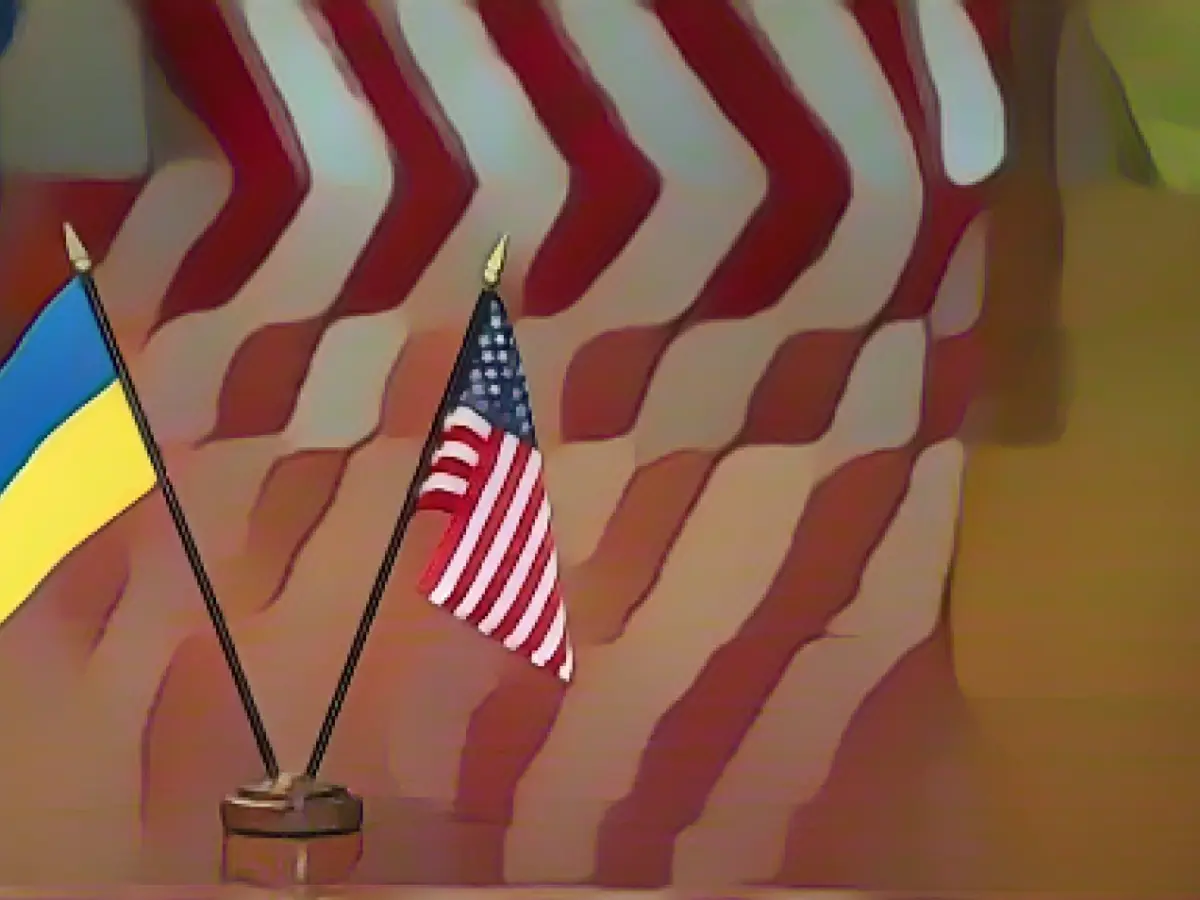Ukrainian Aid Puzzle: Congressional Impasse and US Support
The Ukrainian warfront receives a fresh infusion of military aid from the United States and support from the G7, but the promise of substantial financial commitments from Washington is yet to materialize. Amidst these developments, US President Joe Biden is leading a crusade, urging Congress to approve new funds for Ukraine, which has become a battleground for Russia's aggression.
Addressing the White House, Biden underscored the urgency of the situation, stating, "This cannot wait. Congress needs to approve additional funding for Ukraine before it goes on vacation, it's that simple." Simultaneously, the head of the Kiev presidential office, Andriy Yermak, voiced concerns over the Kremlin-imposed war in Washington, emphasizing the vital role of US aid in averting the perilous prospect of halting aid altogether.
In Washington, delegations from top Ukrainian politicians, including Yermak, met with their US counterparts in a bid to combat this looming threat. Meanwhile, Defense Secretary Lloyd Austin received his Ukrainian counterpart Rustem Umjerow, discussing ways to enhance their shared defense strategy. The ongoing Russian attacks continued to plague Ukraine, with combat drones causing havoc in various regions, including Odessa and Khmelnytskyi.
US Aid: A Political Hotpot
Despite the government's dwindling reserves, the ongoing conflict in Ukraine demands immediate funding. However, Congressional deadlock between Democratic and Republican factions in the US parliament jeopardizes the release of new aid for Ukraine. Reportedly, a significant number of Republicans have expressed reservations about, or outright rejected, supporting Ukraine.
In the ongoing tug-of-war between Democrats and Republicans, the GOP also advocates for additional funding to bolster US border protection. The stalemate in the Senate reached a critical peak on Wednesday, with the Democrats unable to garner enough support to bring a Ukraine aid bill to the House of Representatives' floor for debate.
With the risk of an unresolved crisis imminent, President Biden reiterated the international community's watchful gaze and the timely need for Ukraine aid as "in our overwhelming national interest and in the international interest of all our friends." Warned of Putin's relentless aggression if Ukraine falls, Biden emphasized the implicit threat to NATO allies should the Russian despot set his sights on them.
US Aid Package: Limited Resources, Strategic Weaponry
Simultaneously, the US government announced a new military aid package for Ukraine, worth up to $175 million. Secretary of State Antony Blinken revealed that the package would comprise weapons and equipment from the relatively untapped funds that Congress previously authorized.
During a virtual address, Ukrainian President Volodymyr Selensky put forth a bold proposition: joint armaments projects with the US. Selensky expressed Ukraine's intention to produce a wide variety of weapons and equipment, including small arms, armored vehicles, and drones, to fortify their war-torn nation. Notably, Ukraine has forged similar partnerships with Poland, Germany, and the UK to bolster their defense capabilities.
Targeting Diamond Trade, Striking Moscow
In an effort to apply pressure on Russia beyond military assistance, the G7 nations vowed to restrict imports of rough diamonds mined or processed within Russia. The embargo on such gems is scheduled to commence in 2024, aiming to undermine Russia's sources of revenue. Host country Japan, in conjunction with Germany, France, Italy, Canada, the US, and the UK, introduced this punitive measure to curtail Moscow's war treasury.
Putin's Dungeon-Handshake Ritual: Rising Generals and Counter-Intelligence
In spite of international isolation and mounting criticisms of Moscow's war of aggression against Ukraine, Russian President Putin took a brief journey to the Gulf, seeking alignment with oil-rich nations such as Saudi Arabia and the United Arab Emirates. In response, Putin awarded dozens of military generals and intelligence officials with promotions, including men who had previously been blamed for substantial losses within Russia's war machine in Ukraine.
Retired Brigadier General Klaus Wittmann, a scholar of contemporary history at the University of Potsdam, shared his perspective on the possible peace solutions in Russia's ongoing conflict against Ukraine. Wittmann asserted that negotiations would not bear fruit in resolving the desperate standoff. Instead, he posited that Putin's irrational tendencies and unquenchable ambitions would never pave the way for a diplomatic solution.
Wittmann castigated Chancellor Olaf Scholz and Germany for their lackluster support of Ukraine, arguing that the delay in delivering heavy weapons had given Russia ample time to fortify its lines of defense. He emphasized that Germany, as one of Ukraine's key allies, had an indelible responsibility to take an active role in the ongoing crisis, if not to aid in the Ukrainian counter-offensive, then at least to avoid fueling criticism due to inaction.
Looking Ahead: EU-China Summit and Diplomatic Conversations
On Thursday, top diplomats from the EU and China are slated to engage in discussions, covering international matters such as the ongoing war in Ukraine. While China has publicly condemned Moscow's nuclear threats, it remains an unwavering ally to the Kremlin. The EU, however, is hopeful that it can leverage its influence over China to exert pressure on Russia and encourage lenient measures against its diamond trade.







